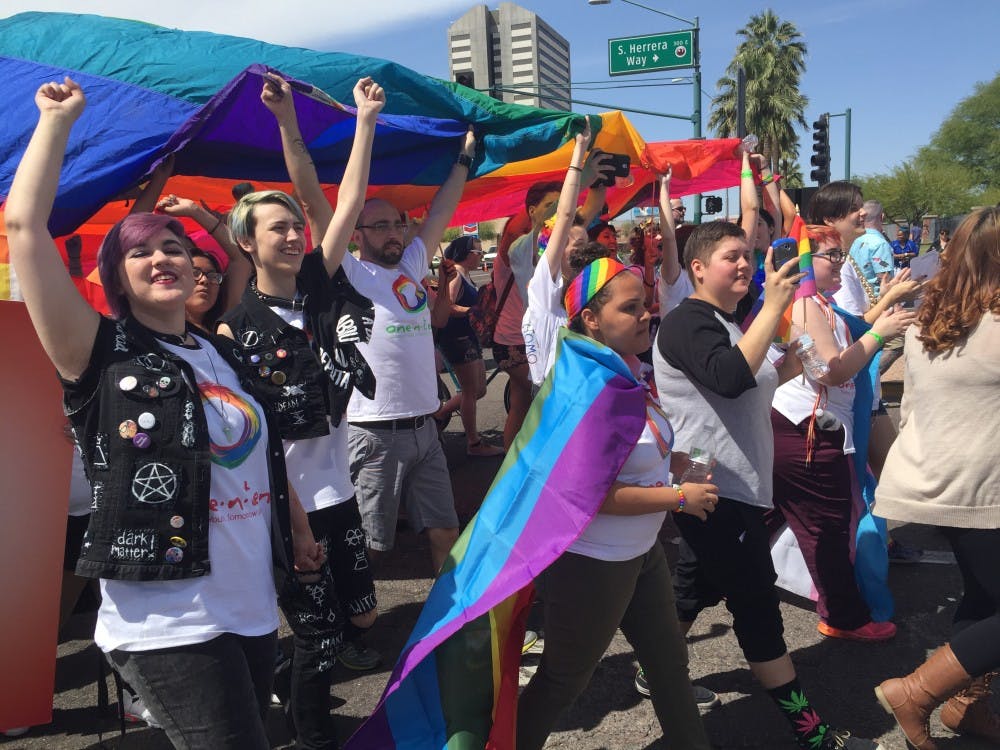There is no questioning that last Friday was a pivotal moment in America’s history.
For those who haven’t already seen the multitude of rainbow-tinted profile pictures on Facebook and/or live under a rock, the U.S. Supreme Court ruled that same-sex marriage is finally legalized across all 50 states.
To celebrate, many same-sex couples took their wedding vows this weekend. Others proposed. Some even got hammered at Pride Fest. In essence, Friday was a great day to be gay.
However, while cheers are clearly in order, this victory should not be mistaken as the end-all be-all of social justice.
Following the SCOTUS ruling, a cartoonist created what Mother Jones said would become an iconic comic:
CardIt’s a powerful image — one that beautifully captures America’s social dichotomy: Just nine days before the legalization of same-sex marriage, a 21-year-old white supremacist shot nine men and women inside a prominent black church in South Carolina.
In only five frames, the cartoon depicts the best and worst elements of our country. Somehow, hate crimes against people of color occur the same month as major civil rights victories.
The only problem with this image is that it implies one victory can serve as retribution for another loss. The confederate flag has nothing to do with same-sex marriage. It flies as a symbol for the systemic racism America continues to perpetuate against the black community.
The year 2015 has increasingly proven that the fight for racial equality in America is far from over. Police apprehend men until they can’t breathe and pull guns on teenage girls at birthday parties.
Even within the LGBT community, transgendered women of color are more likely to be beaten or murdered than any other demographic. Approximately 89 percent of all LGBTQ homicide victims were people of color in 2013.
As a society driven by sensational media, America tends to generalize social justice victories so that they seem more concrete than they are. For instance, legalizing same-sex marriage does not indicate that those who got married this weekend are safe from scrutiny.
In at least 13 states, an employer has a right to fire or refuse to hire a worker based on their sexual orientation. In Arizona, anti-workplace discrimination laws only apply to state employees, meaning that the state does not protect the majority of its LGBT residents.
However, recognizing these lasting issues does not mean Americans should not celebrate the long-awaited ruling of Obergefell v. Hodges. If anything, we should see the case as a stepping stone in making America better.
The fight for true equality may seem futile, but we are making progress. Amid all of the oppression, there is a glimmer of hope that one day, American citizens will truly achieve liberty and justice for all.
We just have to keep the momentum going.
Want to join the conversation? Send an email to opiniondesk.statepress@gmail.com. Keep letters under 300 words and be sure to include your university affiliation. Anonymity will not be granted.
Like The State Press on Facebook and follow @statepress on Twitter.




